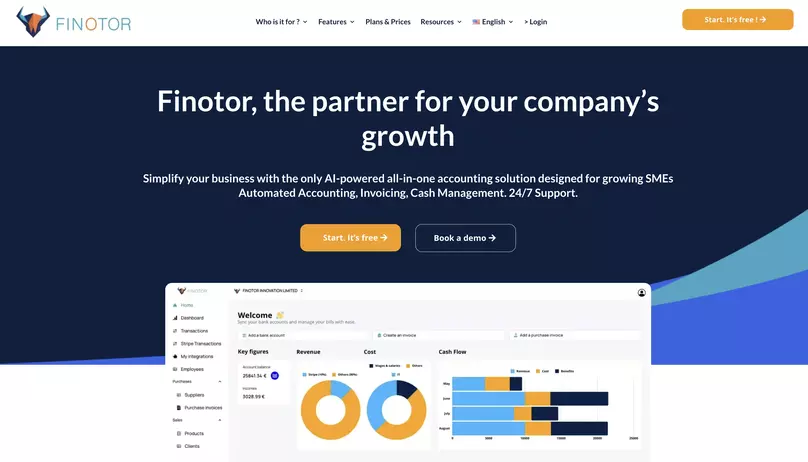Contents
- 1 Breakdown of REITs: An understanding of how they generate passive income
- 2 Highlighting the appeal of REITs to entrepreneurs and small business owners
- 3 The Growing Popularity of REITs
- 4 REITs Performance – A Source of Passive Income
- 5 Understanding the Different Kinds of REITs
- 6 Investing in REITs: Strategic Insights
- 7 Types of REITs
- 8 Making the Selection
- 9 The Power of Diversification
- 10 Sherlock Your Way to the Best REITs
- 11 1. High Risks and Low Returns: A Baseless Fear
- 12 2. Real Estate Expertise: A Needless Necessity
- 13 3. Unstable Market Conditions: An Unfounded Apprehension
- 14 4. Inflationary Effects: A Misconstrued Implication
- 15 Reaping Wealth from REITs: Success Stories
- 16 A Stepping Stone Towards Financial Stability
- 17 Moving Forward with REITs
A striking sunrise, an invigorating cup of java, the secure snugness of the covers: these are the things we might be familiar with as we take our first conscious breaths each day. But what if I were to tell you, as an entrepreneur, small business owner, or investor, there’s something else you should be waking up to? Something much more exhilarating like Real Estate Investment Trusts. A real passive income powerhouse.
A steady stream of income flowing into your bank account— irrespective of whether you’ve gotten out of bed yet. This isn’t a utopian dream, but a well-treaded path bearing the footprints of many successful entrepreneurs and investors. They’ve tapped into a reservoir of regular income by investing in real estate without actually buying a property. Yes, you read that correctly. This compelling form of investment goes by the name Real Estate Investment Trusts (REITs).
In this article, “The Passive Income Powerhouse: Real Estate Investment Trusts (REITs),” we explore the powerful but often underappreciated world of REITs. As a seasoned SEO blog writer with in-depth knowledge in this arena, I’ll navigate you across the terrains of a wealth-building strategy that has transformed individuals into millionaires and millionaires into billionaires.
The property market is no longer the preserve of those with large bundles of cash to spend on purchasing buildings. With REITs, you get the opportunity to step into the real estate ring, but with a striking difference. Here, you’re not the one grappling with property taxes, tenant issues or maintenance headaches. Instead, you become a passive investor enjoying robust returns comparable to the rental income of properties but minus the hassle.
Unearthing these passive income possibilities and revealing how they can powerfully augment your own financial portfolio, this article will delve into every nook and cranny of REITs. By illustrating how they function, outlining their benefits, warning of potential risks, and imparting proven strategies, I aim to arm you with a comprehensive passive income idea that can take your financial journey to new heights.
So, dust off and roll out your money-making blueprint as you prepare yourself to embark on an enlightening saga of real estate investment that promises fruitful returns, deep insights, and most importantly, passive income potential.
Welcome to the world of REITs—your gateway to financial independence without the hazards of traditional real estate investment.
Exploring The Power of Passive Income: Building Wealth Through Real Estate Investment Trusts (REITs)
Imagine an investment that combines the tangibility of real estate with the liquidity of stocks, all while generating a steady stream of passive income. Enter Real Estate Investment Trusts, or as they are more commonly known, REITs. As an entrepreneur or a small business owner, finding diversified passive income ideas to bolster your financial stability is integral. Just like stocks, bonds, or mutual funds, REITs represent a sector in your portfolio where you can scratch the real estate investment itch, without the headaches of direct property management.
Breakdown of REITs: An understanding of how they generate passive income
REITs are entities that own, operate, or finance income-generating real estate across a range of property sectors. They allow anyone to invest in portfolios of real estate assets the same way they invest in other industries – through the purchase of individual company stock or via a mutual fund or exchange traded fund (ETF).
The magic of these trusts resides in their structure, ensuring profits pass onto investors. By law, they’re required to distribute at least 90% of their taxable income to shareholders – this means inflated dividends, and thus, formidable passive income potential. This unique model makes REITs one of the most reliable and consistent income-generating investments in the market.
Highlighting the appeal of REITs to entrepreneurs and small business owners
What makes REITs an enticing passive income idea for entrepreneurs and small business owners? For one, it presents the opportunity to generate income round the clock, without active engagement. This empowers you to focus on what matters most – running your business.
With properties across the country and even offshore, you are not restricted by geography. Plus, the pool of real estate sectors REITs venture into is varied – from healthcare and office spaces to retail stores and residential complexes. This diversification marks REITs as less risky than other single-asset investments, offering a level of security and balance to your portfolio.
Ultimately, while businesses experience ebbs and flows, a diverse REIT investment feeds steady passive income, easing out unpredictability and creating financial stability. So put on your investor’s hat and unlock the potential of REITs, it might just be the passive income injection your portfolio needs.
Setting the Stage: The Dominant Role of REITs in the Current Investment Landscape
Step into today’s smart investment arena and you’re likely to be introduced to one of the most rewarding players on the field: Real Estate Investment Trusts or REITs. With its increasing dominance in the investment landscape, understanding its appeal becomes more than just a passing curiosity; it becomes a financial imperative.
The Growing Popularity of REITs
Statistics and data don’t lie and for REITs, they paint a picture of growth and resilience. According to the National Association of Real Estate Investment Trusts (NAREIT), the total market capitalization of the U.S-based REITs in 2020 hovers around a staggering $1 trillion. Reflecting the immense trust they have acquired in the market, they serve as a pillar for millions who look for a clever passive income idea. They bring the action of the dynamic world of real estate without the accompanying headaches of being a direct landlord.
REITs Performance – A Source of Passive Income
The relative performance of REITs compared to other investment strategies speaks volumes about the magnitude of these potent financial engines. REITs can provide high dividend yields and the potential for moderate long-term capital appreciation, thereby becoming a lucrative wellspring of passive income. Popular sectors like office, healthcare, retail and more, continually fuel the gains in REITs, making them a smart investment choice.
Diving Deeper: How to Invest in REITs and Achieve Financial Stability
So, what practically is a REIT investment and how do you navigate the murky waters of the investment process? While the end product is more often than not, financial stability or even prosperity, the path leading there is fraught with decisions that demand foresight and financial acumen.
Understanding the Different Kinds of REITs
REITs come in stunningly diverse forms, each having its unique opportunities and risks. Primary categories of REITs include Equity REITs, which own and manage income-producing real estate, and Mortgage REITs which provide capital for mortgage and derive their income from the interest. Your choice of a REIT would depend on variables like your risk appetite, financial standing, and investment goal, among others.
Investing in REITs: Strategic Insights
Investing in REITs is not a walk in the park and not every REIT investment bears fruit. Careful consideration of market trends, company’s financial standing, and the type of properties they have in their portfolio will pave your way. While some investors eye REIT stocks that offer high yields, others prefer companies with the prospects of more capital appreciation. The key is to find the right balance.
Understanding the power and potential of REITs is step one, but stepping into the world of real estate investment is a whole other ballgame that requires courage, keen market observation, and strategic financial decisions. With the promise of a profitable passive income, however, the practical intricacies and challenges of playing the REIT game are well worth it. But more on that, in the upcoming section.
Diving Deeper: How to Invest in REITs and Achieve Financial Stability
Sound investment in Real Estate Investment Trusts, more commonly known as REITs, can prove to be a veritable goldmine. Onerous though it may seem when starting, REITs can be the investment strategy that gets the wheels of passive income turning at maximum speed. The following text will make it easier for both the budding investor and the incumbent one to both understand and leverage this rewarding passive income idea.
Types of REITs
There are three main types of REITs: equity, mortgage, and hybrid. Equity REITs own and manage income-generating properties and are the most common type. They generate income through renting out spaces in these properties and make profits when the properties appreciate in value.
Mortgage REITs, on the other hand, earn income on the interest that is paid on the real estate loans they own. It is less common than equity REITs and often considered riskier due to exposure to interest rate fluctuations.
Finally, hybrid REITs are a combination of the two, owning both properties and mortgages. Their income comes from both rents and interest payments.
Making the Selection
Before investing in a REIT, it’s essential to consider market trends and the financial status of the REIT. Just like any investment, it’s important to do your due diligence. This includes researching about the management team, the kinds of properties the REIT owns, and the company’s financial health. An ideal REIT has a diverse portfolio of properties and a healthy balance sheet.
When it comes to market trends, you need to consider both macro and micro factors. Are the general economic conditions favorable for real estate investments? How is the industry in which the REIT operates faring? These are questions that need to be addressed.
Additionally, if you’re investing in publicly-traded REITs, the price can also be an important factor. Look at the historic price performances and the potential for future growth.
The Power of Diversification
When it comes to REITs, diversification is a significant feature. Many REITs hold properties in various locations and sectors, including residential, office, industrial, hospitality, and retail. By investing in REITs, you’re not just investing in one property but a broad range of real estate assets. This kind of diversification can help manage risk and provide more stable returns, thereby securing a steady stream of passive income.
Sherlock Your Way to the Best REITs
Analyzing the fundamentals of a REIT is crucial. Look for positive trends in revenues, net income, and funds from operations. Check the company’s debt levels and ensure they’re manageable.
Investing in REITs is a robust technique for achieving financial stability. By selecting the right kind of REITs, taking market trends and financial standing into consideration, and adopting a diversified approach, you can achieve the goal of generating a healthy passive income stream from REITs. Now is the time to grasp the nettle and move towards your financial freedom.
Your journey to a steady passive income has just begun. There’s still a lot more left to explore in the wide world of REITs. Let’s continue this exploration in the next section where we dispel the myths surrounding REITs and discuss ways to mitigate potential investment risks. So stay tuned and don’t go anywhere!
IV. Refreshing Your Perspective: Addressing Common Misconceptions About REITs
In the world of real estate investment and passive income, misinformation can often lead to apprehension. However, allowing inaccuracies to shape your financial decisions can be a dangerous game. Therefore, let’s address some common misconceptions about REITs.
1. High Risks and Low Returns: A Baseless Fear
It’s not uncommon for entrepreneurs to shy away from REITs due to a perceived risk. As with any investment option, the risk element cannot be completely eradicated. However, the risk associated with REITs is often oversimplified and exaggerated.
In reality, the risks associated with investing in REITs are quite similar to those of traditional stocks. Despite this, REITs often offer more stable returns due to the consistent income they generate from rent or lease payments. Remember, a well-diversified REIT portfolio can provide stringed protection against inconsistencies across different properties and sectors.
2. Real Estate Expertise: A Needless Necessity
One common misconception is that considerable expertise in real estate is necessary to invest wisely in REITs. This is untrue. REITs are designed to be accessible to all kinds of investors, regardless of their level of experience or understanding in the real estate sector.
As with other forms of investment, due diligence is required. However, there are also expert advisors and analyst reports readily available to aid your decision-making process. Proper utilization of these resources can facilitate the smart selection of REITs that match your financial goals.
3. Unstable Market Conditions: An Unfounded Apprehension
Another myth about REITs surfaces from the mistaken belief that they are more susceptible to market fluctuations. In truth, while REITs can certainly be affected by market downturns, they are not necessarily more volatile than other types of investments.
Moreover, even during economic uncertainties, the demand for real estate rarely diminishes completely. This is especially true for certain sectors like healthcare and residential REITs- sectors which are considered essentials in any economy.
4. Inflationary Effects: A Misconstrued Implication
Lastly, let’s address the concern that REITs are adversely affected by inflation. While it is accurate that rising interest rates can put pressure on real estate values, it’s also important to highlight that many REITs can actually benefit from inflation.
This is because as rents increase with inflation, income-driven investments like REITs can often raise their dividends in response. This unique feature makes REITs an attractive passive income idea, even in an inflationary environment.
As with any investment, there are potential risks involved in REITs. However, misconceptions should not deter you from making informed choices that could significantly boost your financial stability. In the next section, we will delve into the incredible success stories and living examples of those who’ve put REITs into action. Stay tuned!
Putting Passive Income to Work: Making the Smart Move to Invest in REITs
Drawing from comprehensive analyses and stories from successful investors, real estate investments, particularly REITs, have proven to be a goldmine for generating passive income. Seizing this passive income idea adds not just another stream of income to your portfolio, but also offers improved financial stability.
Reaping Wealth from REITs: Success Stories
Entrepreneurs and small business owners around the globe have amassed impressive returns from their REIT investments. Take the instance of Tom, a small business owner who diversified his portfolio by investing in data center REITs. Recognizing the exponential rise in the need for data storage, Tom captured this opportunity and now enjoys a steady passive income stream.
Similarly, Susan, an entrepreneurial investor, chose to channel her resources into residential REITs. Leveraging the continuous expansion of the rental market, she has successfully established a passive income stream apart from her primary venture.
These examples reveal that with the right strategy and understanding, REITs can truly become the powerhouse of your passive income generation.
A Stepping Stone Towards Financial Stability
The fascinating thing about REITs is that they allow investors to enjoy the benefits of real estate ownership, including steady passive income, but with fewer hassles. This paves the way towards financial stability, especially for those just starting their entrepreneurial journey or established small business owners aiming to diversify their income streams.
Moving Forward with REITs
Adopting the smart move to invest in REITs not only diversifies your financial portfolio but also ensures a regular cash flow. It is about making the decision today to enjoy the profits tomorrow, and joining the rising number of investors who have transformed their wealth portfolios with this extraordinary investment.
Are you ready to explore the potential that REITs hold for your financial growth? It’s time to leverage this optimal passive income idea to improve your asset allocation, enhance yield, and secure your financial future.
Bring your Business Vision to Life with Finotor
Optimally managing your future business allows you to spend as little time as possible on accounting, thereby enabling you to focus on your true value creation. With Finotor (www.finotor.com), you have the best all-in-one tool to help with your venture’s accounting and financial management.
Save yourself from complex accounting chores. Embark on the journey of managing your business finances with ease, so you can put your heart and soul into what you do best – growing your business. Try out Finotor for free and take the first step towards a hassle-free business finance management experience.
In conclusion, for the shrewd entrepreneur, small business owner, or investor looking for a lucrative passive income idea, REITs offer a compelling avenue worth exploring. The main attraction of REITs is the passive income component. As demonstrated in the discussion above, REITs provide investors with a regular stream of income, which requires minimum effort or direct involvement, establishing them as a potent instrument for passive wealth generation.
REITs offer access to real estate sector, a historically stable asset with appreciating value over time, providing investors with exposure, capital appreciation, and diversification, without having to take on the direct burdens of owning property, like property management or capital investments for renovations.
The potent combination of steady income and potential for capital growth sets REITs apart, making them a powerhouse for passive income. The ease and simplicity that REITs offer in terms of handling and managing property investments make them an attractive passive income idea for entrepreneurs, small business owners, and investors who may not necessarily have a background in real estate but are keen on tapping into its revenue-generating potential.
Also, the transparency and regulated nature of REITs lend a level of security missing from many other passive income strategies, making them a safer way to generate income passively in this sector. Investors can research the performance of REITs, evaluate their holdings, and understand their strategies before committing their money, giving them a level of insight and control over their investment.
However, like with any investment, REITs are not without risks. While they offer a relatively stable return, the real estate market also experiences periods of volatility which can affect the returns of REITs. As such, potential investors must exercise due diligence, understanding their financial situation, risk appetite, and investment goals before diving in.
In the grand scheme of financial freedom and wealth generation, capitalizing on the passive income powerhouse that is Real Estate Investment Trusts (REITs) can be a game-changer. It’s an avenue that’s not only lucrative but also democratizes access into the realm of real estate, traditionally viewed as the playground of the rich and connected. It establishes a level playing field where literally any entrepreneur, small business owner, or investor can participate, earn, and grow their wealth passively.
So, there you have it, the passive income-powering potential of REITs decoded. If harnessed strategically, REITs can serve as the powerful engine under the bonnet of your wealth creation vehicle, driving you towards the cherished destination of financial independence.









